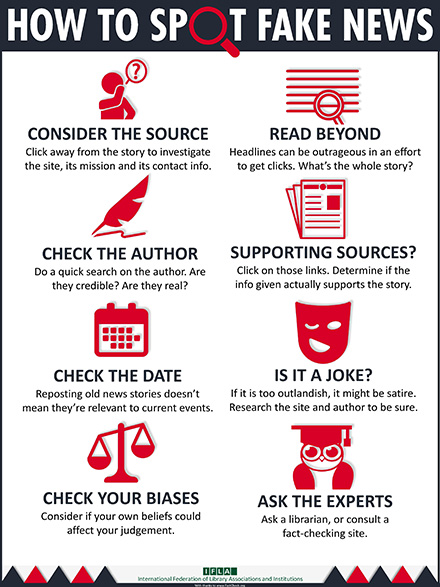Education before Regulation: IFLA Engages at Fake News Workshop
01 March 2018
 As calls grow for governments to act quickly on fake news, many seem tempted to create ‘bans’ or regulation. However, simple solutions are rarely the best response to complex problems. At a workshop on fake news with European Commissioner Mariya Gabriel in 27 February, IFLA underlined the weaknesses of regulation, and the importance of education, as a way forwards.
As calls grow for governments to act quickly on fake news, many seem tempted to create ‘bans’ or regulation. However, simple solutions are rarely the best response to complex problems. At a workshop on fake news with European Commissioner Mariya Gabriel in 27 February, IFLA underlined the weaknesses of regulation, and the importance of education, as a way forwards.
In recent months, the German government has already aimed to make fake news ‘illegal’. The French government has been thinking about doing the same. Yet these efforts remain risky.
The European Union is now looking at whether it should act. This is significant, both in that the EU already spends significant funds on promoting media and skills, but also in the example it could give to other countries around the world. The 27 February workshop offered an opportunity to feed in to these reflections, building on IFLA's response to an earlier consultation.
Given the vital importance of free expression, any limitations on this need to be strictly limited. The risk in making ‘fake news’ illegal is that individuals and platforms such as Facebook or Twitter, will censor themselves. Faced with the risk of legal proceedings, they will be more cautious than necessary, and so block legitimate speech.
IFLA also underlined that complicated regulation would tend to favour those platforms with the technical capacity to analyse and police adverts and news stories. This would hurt smaller actors – including libraries – who give access to information but cannot implement detailed filters or checks.
The only credible answers are support for quality journalism, and of course education. It is the latter that will help everyone take a critical view of what they are reading, online or on paper. Libraries have a vital role to play here, as already underlined in a report to the European Parliament, and in IFLA’s own Recommendations on Media and Information Literacy, and Statement on Digital Literacy.
Encouragingly, the European Commissioner for Digital Economy and Society, Mariya Gabriel, agreed with this view. IFLA looks forward to working with all governments to promote education as the best response to fake news around the world.